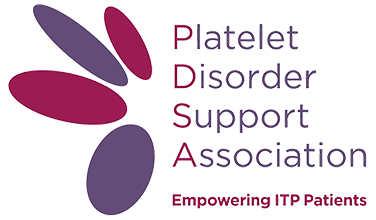For those with ITP, the primary focus is on feeling better. While numerous conventional treatment options may be recommended for the bleeding disorder—and new medications continue to be developed—many look to complementary medicine approaches to help manage symptoms and enhance their quality of life.
Relied on for thousands of years by those in pursuit of health and well being, complementary therapies are used today by about 40 percent of adults in the United States and they continue to grow in popularity. In fact, many doctors often incorporate an “integrative medicine” approach, combining complementary therapies with mainstream medical treatments for additional relief.
Unfortunately, there is very little scientific research on the use of complementary therapies, specifically for ITP. And, while some people have found these alternative approaches have helped, they also come with their own risks. To help understand complementary therapies, you should ask your doctor the same questions as any other treatment to understand the best approach for your condition.
What are some examples of complementary therapies?
There are many complementary therapies available and the options constantly change as treatments undergo testing. The National Center for Complementary and Integrative Health (NCCIH) at the National Institutes of Health (NIH) classifications of types of complementary health approaches used to treat a variety of conditions include:
Natural products
Herbal Therapies
The use of plants or plant-based extracts to healVitamins and Supplements
The practice of replacing or adding to the vitamins, amino acids, and other compounds in the body
Mind and body practices
Traditional Chinese and Ayurvedic Medicine
Holistic healing systems originating thousand of years ago, including acupuncture, diet, herbal remedies and meditation.Energy Therapy
Various healing modalities that seek to enliven and balance the body’s energetic system, referred to as prana, chi, or kiMind Body Medicine
The way the mind interacts with and can potentially help heal the body
Other complementary health approaches
Diet & Lifestyle
The power of a healthy lifestyle is undeniable for anyone. While there’s no single diet or regimen that will relieve the symptoms of ITP, you can support your immune system by making your lifestyle a healthier one.Homeopathy
Homeopathy, also known as homeopathic medicine, is an alternative medical system developed in Germany more than 200 years ago based on two unconventional theories: “like cures like”—the notion that a disease can be cured by a substance that produces similar symptoms in healthy people; and “law of minimum dose”—the idea that the lower the dose of medication, the greater the effect.Spirituality
The influence of a divine connection on health and healing
(Information regarding complementary medicine therapies does not represent an endorsement by PDSA or its medical advisors. For advice on your unique medical condition, please consult your healthcare provider.)






